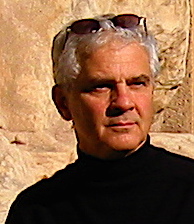A Quote by Noam Chomsky
There's an interesting book by the former Brazilian ambassador Celso Amorim. In 2010, he initiated an effort along with Turkey to settle the whole Iran issue. Nobody outside of the United States takes it to be much of an issue. They made a deal with Iran for Iran to essentially give away its low enriched uranium to Turkey for storage, and in return, the Western powers. It was immediately scratched by Barack Obama and Hillary Clinton. And the main reason was they didn't want anybody else to be involved in it. We were supposed to run things, but we didn't say that.
Quote Topics
Along
Ambassador
Anybody
Anybody Else
Away
Barack
Barack Obama
Book
Brazilian
Clinton
Deal
Effort
Else
Enriched
Essentially
Former
Give
Hillary
Hillary Clinton
Immediately
Interesting
Interesting Book
Involved
Iran
Issue
Low
Made
Main
Much
Nobody
Obama
Outside
Powers
Reason
Return
Run
Say
Settle
States
Storage
Supposed
Takes
Things
Turkey
United
United States
Uranium
Want
Were
Western
Whole
Related Quotes
Turkey's relations with its immediate neighbors are improving. They were pretty bad for a long time - with Syria they were abominable, and with Iran they were pretty bad. In both cases Turkey sees potential for trade, especially with Iran, where it gets a lot of natural gas. In good times Iran and Turkey find mutually profitable objects of exchange, but with Syria things have been very bad; Syria doesn't have much money and never will.
In the United States, Iran is nothing but a whipping-boy. Few Americans have any real use for Iran. Most of us, what we know and remember about Iran are things like the hostage crisis in 1980, or they think about the Iranian attacks in Lebanon, or on the Khobar Towers. So you don't get a whole lot of political mileage in the United States by going out and advocating better relations with the Iranians.
I am quite international. My background, born in Turkey. My family is a Jewish family from Iran, so I went from Turkey to Iran to Israel, and then grew up in Italy and ended up in U.S. for graduate school. So I tend to look at things from an international perspective, and I think that gives you a little bit of a broader view of what's going on.
The issue has two dimensions. One is the legal dimension and the other one is the issue at the realpolitik. [In the] legal realm, we believe in equal rights for all people in all nations. If Israel, the United States, Russia, Pakistan, other countries, China, have the right to have a nuclear program and nuclear bomb, Iran, too, must have that same right. Now, at the realm of realpolitik, because there is a global consensus against Iran, and because there are all manner of dangers facing Iran, I am opposed to this program.
I do believe that the very tense relationship between the United States and Iran presents a challenge to the United States. But to discuss Iran as that type of a threat I find somewhat unconvincing, mindful of the fact that Iran actually doesn't have those military capabilities that would be needed to refer to it as that type of threat.
Since 1981, after our nations severed diplomatic relations, we've worked through a international tribunal to resolve various claims between our countries. The United States and Iran are now settling a long-standing Iranian government claim against the United States government. Iran will be returned its own funds, including appropriate interest but much less than the amount Iran sought. With the nuclear deal done, prisoners released, the time was right to resolve this dispute as well.



































